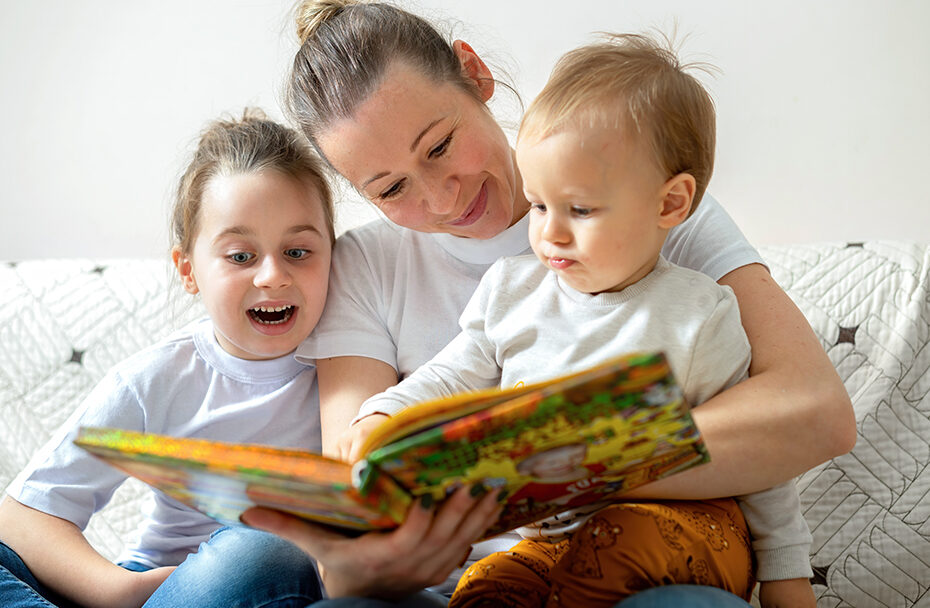A safe, peaceful environment, full of love and opportunities to develop is one way of ensuring a happy childhood. Children are the most vulnerable people in our society, since they have not yet learned how to regulate their emotions or cope with their problems. Children’s outbursts are a little better understood when we take this into consideration. We shouldn’t react unfairly, even when we are tired or burned out. We must remember that it is our responsibility to teach our children how to deal with their emotions. Little ones tend to copy their parent’s reactions. We should always monitor our own mood, analyze how we talk to others and react when we face difficulties, in order to pass on good behavioral habits to our children. The ability to face problems assertively will manifest itself later in adulthood. Normally, adulthood means making difficult decisions and assuming greater responsibilities. The behaviors they learn as children will shape their way of approaching situations that come their way.
Guidelines to ensuring a happy childhood
Ensuring a happy childhood means providing a safe, loving and stimulating environment that fosters their emotional, physical, and cognitive development. Here are some guidelines that can help you achieve this:
- Love and attachment: Provide your child with an environment full of love, affection, and emotional support. Children need to feel loved and protected in order to develop positive self-esteem and healthy relationships in the future.
- Safe Environment: Create a safe and hazard-free environment at home and in other places the child frequents. Pay attention to the safety of toys, furniture, and items you use at home.
- Play and exploration: Encourage play and exploration in a nurturing environment, fostering knowledge and skill development. Children learn a lot through play, and it helps them develop social, cognitive, and motor skills.
- Quality time: Spend quality time interacting with your child. Participate in activities that interest them and help to develop different skills, such as reading together, playing educational games, and doing outdoor activities.
- Cognitive stimulation: Provides opportunities for learning and cognitive stimulation. This can include activities like reading, solving puzzles, practicing basic math skills, and exploring nature.
- Limits and Positive Discipline:Set clear and consistent limits, but use positive discipline instead of physical or verbal punishment. Help the child understand the consequences of their actions and develop problem-solving skills.
- Good nutrition: Make sure your child has a balanced and healthy diet. Proper nutrition is essential for physical and mental growth and development.
- Adequate sleep: Ensures that the child has enough quality sleep time. Sleep is crucial for brain development and emotional well-being.
- Encourage creativity: Support children’s creativity and encourage them to express themselves through art, music, or any other form of expression that interests them.
- Socialization: Provide opportunities for the child to interact with other children their age. Socialization helps them develop social skills, empathy and solve interpersonal problems.
- Respect and listen: Actively listen to the child and respect their feelings and opinions. Show them that their thoughts and emotions are valuable and worthy of attention, just like other people’s.
- Model positive thoughts and behaviors: Be a good role model. Children tend to approach problems based on their ideas. Instilling healthy and realistic values, helps them to face any kind of situation. Little ones also imitate adult behavior. Therefore, we must show respect, empathy, and a positive attitude in our daily lives. Likewise, we should teach them to be grateful for the good that happens to them on a day-to-day basis.
Remember that each child is unique and may need different approaches to develop and be happy. The most important thing is that we are present, involved in their lives, and respond to their emotional and physical needs with love and care.
Encourage autonomy
Fostering autonomy in childhood leads to integral development. Allowing them to make age-appropriate decisions and promoting problem-solving, gives them confidence in their abilities. By encouraging their curiosity and creativity, they develop an independent and confident mindset. Providing a safe environment where they can explore, learn and express themselves helps them to acquire fundamental social and emotional skills. Autonomy strengthens their self-esteem and prepares them to successfully face future challenges. Children who know how to take care of themselves will be better prepared for adult life, in which they will have to face stress and diverse situations. The tools we offer them throughout parenting, make it more likely that they will be happy and be able to achieve their goals.
The importance of leisure
Leisure is important when ensuring a happy childhood. Free leisure in childhood awakens imagination and creativity, fostering cognitive and emotional skills. Unstructured play develops problem-solving, decision-making, and social skills. In addition, it helps reduce stress, promoting emotional balance. No-pressure playtime builds self-esteem, allowing children to explore their interests and discover their unique identities in a fun and nurturing environment.
We should also encourage them to try more structured forms of leisure without forcing them, such as new sports, playing instruments, reading stories… Materlu offers personalized stories which have the advantage of allowing children to feel identified with the story and the character, thus promoting their interest and motivation for reading. Reading itself is very important and can transform the lives of children.
Conclusion
Ensuring a happy childhood is essential because it will lay the foundation for a child’s well-being throughout life. A happy childhood consists of a safe and loving environment, promoting healthy emotional and mental development. Happy childhood moments foster self-esteem, confidence, and a positive view of the world. In addition, it allows them to develop social, creative and cognitive skills more effectively. A happy childhood creates adults who are more balanced and capable of facing challenges with greater resilience and personal satisfaction.
